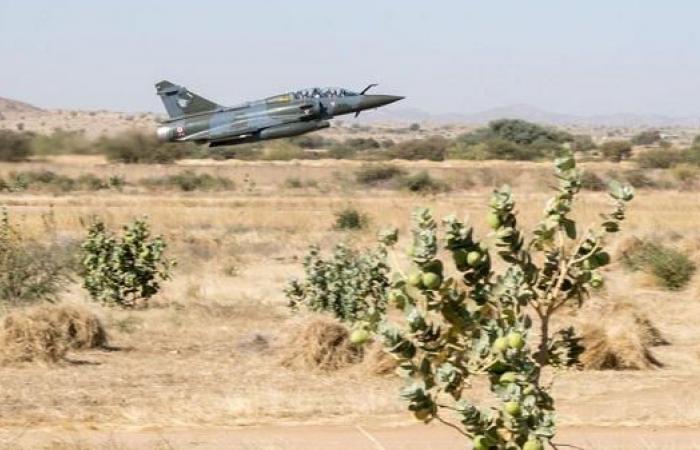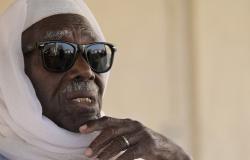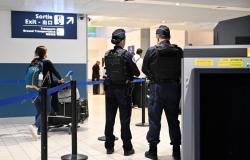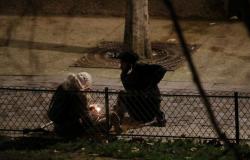
In January 2009, in line with the White Paper on Defense and National Security [LBDSN] published a few months earlier, President Sarkozy announced that France would drastically reduce its military presence in Africa and that the defense agreements concluded with several African countries following their independence would be reviewed. “I want to be certain that each French soldier, today engaged in external operations, is in accordance with the interests of the country. […] It is not a question of maintaining the external deployment of our forces beyond what is necessary, beyond what is useful,” he said in January 2009.
While it was a question of adopting a logic of partnerships with the African armed forces with the establishment of “operational cooperation centers” [POC] regional, the French Forces of Cape Verde [FFCV] became the “French Elements in Senegal” while, in Ivory Coast, the 43rd Marine Infantry Battalion [BIMa] was dissolved. The French military presence in Chad was even called into question by Alain Juppé, then Minister of Foreign Affairs, the “Épervier” operation having, according to him, no longer had any reason to exist.
The progression of jihadist groups in the north of Mali put an end to this policy, Paris having launched, at the request of Bamako, the “Serval” operation. This took the name “Barkhane” in 2014 and was extended to the entire Sahelo-Saharan strip. [BSS].
Only, in a context marked by an information struggle led in particular by Russia [et, dans une moindre mesure, par la Turquie]France owed its troops from the Central African Republic, Mali, Burkina Faso and Niger. That being said, in February 2023, President Macron renewed the intentions displayed by Mr. Sarkozy by announcing a “visible reduction” in the French military presence in Africa and the establishment of a “new partnership model” in order to promote the “rise of African forces”.
This development was, a priori, requested by the General Staff of the Armed Forces [EMA]. “It is appropriate to lower the visibility of the French presence by avoiding locating bases in capitals. […] We are therefore moving from a logic of permanent deployment to temporary deployments of forces carrying out missions, with the support of a much smaller and less visible base,” General Thierry Burkhard, the head of state, recently explained. -major of the armies [CEMA]during a Senate hearing.
In detail, it is now a question of increasing French military personnel in Africa from 2,300 to 600 soldiers, namely 300 in Chad, 100 in Gabon, 100 in Ivory Coast and 100 in Senegal. Except that France could well be forced to go further…
Indeed, in an interview given to AFP, the President of Senegal, Bassirou Diomaye Faye, without going so far as to speak of a rupture, mentioned a “soon update of the doctrine of military cooperation”, which would involve that “there are no more military bases of any country whatsoever in Senegal”. Clearly, the French soldiers will be asked to pack up… And too bad for the help provided by the French Navy [via un Falcon 50] to the Senegalese authorities to fight against illegal fishing…
“Why must we choose one or the other and not one or the other? […] Today, we want to work with everyone who can invest and help create wealth in Senegal. What matters to us is that they respect our sovereignty and our social standards,” explained Bassirou Diomaye Faye.
“We have cooperation with the United States, China and even Turkey without these countries having a base on our soil. Our relations nevertheless remain in good shape. Is France capable of doing this? », argued the Senegalese president, who could also have cited Russia, with which he would consider concluding a military agreement.
Senegal is not the only one to be on this line: on November 28, Chad announced its intention to put an end to the defense cooperation agreement which has linked it to France for more than sixty years. . This announcement was made while the head of French diplomacy, Jean-Noël Barrot, had just visited N'Djamena.
“The government of Chad has decided to terminate the defense cooperation agreement signed with France,” the Chadian Ministry of Foreign Affairs announced in a press release. And added: “Chad, in accordance with the provisions of the agreement, undertakes to respect the terms provided for its termination, including the notice period, and to collaborate with the French authorities in order to ensure a harmonious transition “.
That being said, he assured, the “historical relations” and the “ties of friendship” between France and Chad are in no way called into question by [cette] decision “.
France has always supported President Idriss Déby Itno, who died in circumstances which have never yet been precisely established. And she showed a certain leniency when her son, Mahamat Idriss Déby, took the head of a Transitional Military Council in order to succeed her. Obviously, the latter therefore intends to free itself from military ties with Paris…
However, this development has been more or less in the air for some time. In January, during a visit to Moscow, Mahamat Déby Itno affirmed that Chad was a “brother” country of Russia and that he was ready to strengthen its relations with the latter.
“Chad is among African countries a potential partner, all the possibilities of our exchanges are far from being revealed, we are determined to continue to expand our interactions with African countries”, then commented Dmitri Peskov, the spokesperson. word from the Kremlin.
Three months later, the American special forces, installed on the “Sergeant chef Adji Kosseï” base in N’Djamena, which is a “hub” for counterterrorism and intelligence activities in the Sahel, were firmly invited to leave Chad.
Note that, at the same time, Hungary has also established military relations with Chad, where it must deploy 200 soldiers to “strengthen the capacities of the Chadian army and support the fight against terrorism”.
On this point, and in addition to the rebel groups still active in the Tibesti region [et contre lesquels la France étaient encore intervenue militairement en février 2019, ndlr] Chad remains grappling with jihadist factions from the Nigerian group Boko Haram. In October, they launched an attack against a military base located on the island of Barkaram [Lac Tchad]. Attack which left at least 40 killed in the Chadian ranks.
“The government calls on the international community to intensify its support and strengthen aid in the fight against terrorism, particularly in the Sahel region and the Lake Chad basin,” N’Djamena reacted at the time. “France stands alongside Chad in the fight against terrorism,” responded Paris, sending its condolences to the Chadian authorities.





